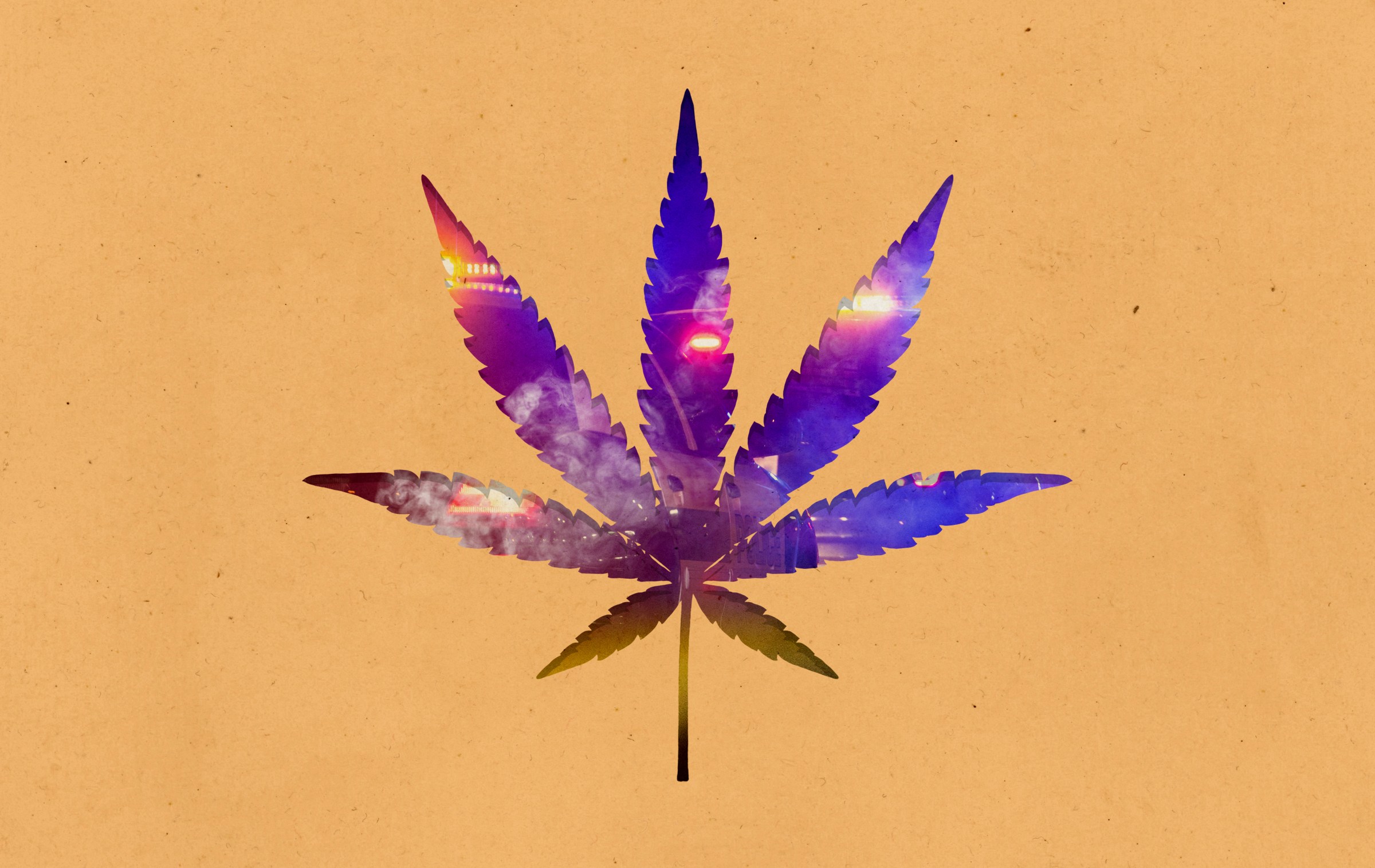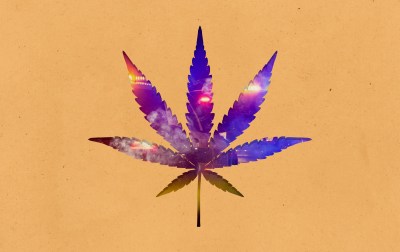Turn any article into a podcast. Upgrade now to start listening.
Premium Members can share articles with friends & family to bypass the paywall.
“Either we have the problems associated with drug abuse, or we have the problems associated with trying to control it,” the drug-policy scholar Mark Kleiman wrote in his 1992 book Against Excess. Kleiman’s point—that drug control involves the careful optimization of trade-offs—is obvious to anyone who studies social policy. Yet it is routinely ignored by advocates of drug legalization, who cling childlike to the idea that their preferred outcome is all reward, no risk.
So it is with weed. Because marijuana was once prohibited everywhere, for many decades the costs of prohibition were visible, while the costs of legalization were hypothetical. This was a comfortable position for advocates of legalization, as their claims about legalization’s (lack of) downsides could not be empirically validated.
Fortunately, we now have several decades of data on the effects of legalization. The results are undeniable: Legalization greatly enhances the harms of marijuana, while doing surprisingly little to diminish the harms of prohibition. Expanding it further will only increase the costs, while yielding little additional benefit. Arguments to the contrary are built more on dogma than evidence—an unfortunate reality of the legalization debate that is long overdue for correction.
Charles Fain Lehman“Legalization has been tried. The results have been more addiction, more suffering, and more dysfunction. The status quo ante suffered few of the ill effects critics alleged.”
Clark Neily“The question should not be whether marijuana users can prove their freedom is worth the costs, but whether prohibition advocates can meet the heavy burden of justifying why adults should face criminal penalties for private choices about their own bodies and consciousness.”
Why is marijuana harmful? Start with the fact that it is addictive. About 30 percent of users will develop a “cannabis use disorder,” characterized by compulsive use in spite of negative consequences. Roughly 19 million Americans met the criteria for a CUD as of 2023, according to federal survey data.
When a product is illegal, it is harder for companies to sell it. They cannot advertise, rent retail space, access investment capital, or do many of the other things legitimate companies do. When these limits are lifted, efficient capitalist enterprises can give users what they want. In the case of an addictive product, what users want is stronger drugs. Unsurprisingly, therefore, recreational marijuana legalization increases use and addiction.
More use and more addiction means more of the harms that accompany both. Some of these harms are acute, like cannabis-related hospitalizations or accidental consumption resulting in what a pediatrician speaking to the New York Times recently labeled “floridly psychotic 2-year-olds.” Some of the harms are chronic: Systematic reviews link marijuana use to heart attack, stroke, lung damage, psychosis, and schizophrenia.
Marijuana legalization does harm to others, too. Legalization has been shown to cause an increase in car-crash deaths, about 1,400 per year. The opening of new marijuana dispensaries lowers nearby property values. One estimate from the Kansas City Federal Reserve finds that while legalization increases per capita income by about 3 percent, it also increases chronic homelessness—defined as homelessness with a co-occurrent drug addiction or mental illness—by a whopping 35 percent. And of course there is the pervasive smell, in major cities, parks, and even at the U.S. Open.
Many products are harmful, of course, without being prohibited. But addiction means that people keep using pot even though it is bad for them and those around them. That makes marijuana’s harms of particular governmental concern.
Some legalizers claim, relying mostly on older research, that marijuana’s harms are offset by a reduction in the consumption of—and therefore harm from—other substances, like alcohol and opioids. Even in 2016, the research base was equivocal, suggesting that alcohol and marijuana were complements in some contexts and substitutes in others. More recent research from Washington state finds that recreational marijuana users tend to use alcohol and marijuana together, not as substitutes. As for opioids, early research found that medical marijuana legalization seemed to reduce opioid use. But that effect has vanished, and possibly even reversed, with more years of data.
Legal weed has costs but, as Kleiman argued, so does its prohibition. Prohibition entails the myriad harms caused by arrest, prosecution, incarceration, and criminal record. What about that side of the ledger?
While advocates of legalization paint prohibition as a horror show, a look at the evidence offers a different picture. Legalizing marijuana does surprisingly little to reduce the harms associated with its prohibition. This is in part because prohibition was largely unrelated to many alleged harms, such as racial disparities in the criminal justice system; and in part because harms are usually already minimized, de jure or de facto, prior to formal recreational legalization.
Most obviously, marijuana prohibition generates a lot of arrests—roughly 204,000 last year. Legalization does reduce those arrests, by as much as 76 percent, albeit with a smaller effect for minors than adults. (In some cases, minors become more likely to be arrested after the legalization of cannabis for adults.) At the same time, total arrests actually rise following legalization, by about 13 percent. Insofar as arrests are per se harmful, it’s not obvious legalization reduces this harm.
Why does legalization increase arrests? One argument is that it allows police to focus more on non-marijuana crimes. But police do not clear more crimes after legalization, a 50-state analysis concludes. Another is that the gray markets that spring up following legalization have generated their own crime. That’s true, but probably not the whole story, as enforcement in these markets has been sluggish.
Perhaps the best explanation is that possession arrests were always mostly “pretext” enforcement, a way for cops to pick up someone for another crime. Legalization simply means cops shift to a different pretext—and, in fact, the aforementioned paper shows that the increase in arrests is driven by disorderly conduct and DUI arrests, not major crimes. Some, of course, object to this practice. But legalization clearly does little to affect it either way.
How do we know possession enforcement was mostly pretextual? One reason is that almost no one goes to prison for marijuana possession. All drug-possession offenses account for only about 3 percent of prisoners nationwide, and marijuana possession a fraction of those (almost all of whom pleaded down from trafficking charges). Similarly, the legalization of marijuana had no effect on rates of pretrial detention in Washington state, or on the risk that people would return to prison within a year of release.
Advocates also often argued that prohibition drove the black-white punishment gap in our criminal justice system. Did legalization reduce the gap? Not so much. It had little effect on overall disparities in arrest rates in a study of national data. In Washington, legalization had no effect on disparities in pretrial detention. In Colorado and Washington, legalization had no effect on disparities in imprisonment rates. Whatever the cause of the gap is, it’s clearly not marijuana’s legal status.
One other cost on the prohibition side of the ledger is worth noting: crime. Many legalizers argue that prohibition creates a black market, in turn engendering more serious offenses. This may be true for some prohibited products, but it doesn’t appear to be true for marijuana: Legalization has no discernible effects on major crime rates, either positive or negative. And at least in some places, legalization has been a boon for organized crime.
How is it possible that legalization does little to reduce the harms of prohibition? In part, it’s because the sources of those harms are unrelated to marijuana’s legal status. But it is also true that states did not enforce prohibition particularly strictly prior to legalization. There are, of course, horror-story exceptions. But legalization had little impact because many jurisdictions had already acted to mitigate the downsides of prohibition through discretionary non-enforcement or, in some cases, decriminalization of possession. All of this was doable, moreover, without legalizing the retail sale of marijuana—the policy that leads directly to all the previously reviewed dysfunction.
Of course, one might argue that there is something intrinsically less moral about enforcing marijuana laws as opposed to other laws. Even if the criminal justice system’s effects on net are unchanged, maybe we live in a better world because the same number of people are being punished for different offenses. But to make this argument, we must leave the world of cost and benefit and venture into the world of value judgments.
Indeed, one claim many—including my interlocutor—make is that prohibition is bad not primarily because of its harms, but because it is immoral. In this view, people have a right to consume marijuana as an extension of the alleged natural right to do whatever they want so long as it harms no other. The government ostensibly cannot contravene that right for any reason.
I characterize this as a “claim” rather than an “argument” because it is an axiomatic assertion. It rests on neither empirical evidence nor cogent moral reasoning. It is a profession of faith, essential to the libertarian creed but of little persuasive value to the nonbeliever.
In reality, acting for the public health and welfare is a long-standing function of America’s governments, one never thought seriously to be a problem by reasonable observers. Vices were banned in the Plymouth Colony; states banned liquor as early as the 1850s; the Founders proscribed even speech where it contravened public order or decency. Contemporary Americans mostly oppose such restrictions but are comfortable with everything from seatbelt mandates to the Consumer Product Safety Commission. They reject older prohibitions on their merits, not because they believe health and safety regulation is intrinsically immoral.
Nonetheless, the belief in a right to get high grounds many libertarians’ support for marijuana legalization. They are entitled to their beliefs. But in the real world of public policy, evidence should dictate outcomes—not a quasi-religious principle foisted on the public.
When we do that balancing, moreover, the results are quite clear. Legalization has been tried. The results have been more addiction, more suffering, and more dysfunction. The status quo ante suffered few of the ill effects critics alleged. In judging whether to go further, we should let those experiences be our guide, not the dogmatisms that so frequently characterize the other side’s arguments.




Please note that we at The Dispatch hold ourselves, our work, and our commenters to a higher standard than other places on the internet. We welcome comments that foster genuine debate or discussion—including comments critical of us or our work—but responses that include ad hominem attacks on fellow Dispatch members or are intended to stoke fear and anger may be moderated.
With your membership, you only have the ability to comment on The Morning Dispatch articles. Consider upgrading to join the conversation everywhere.